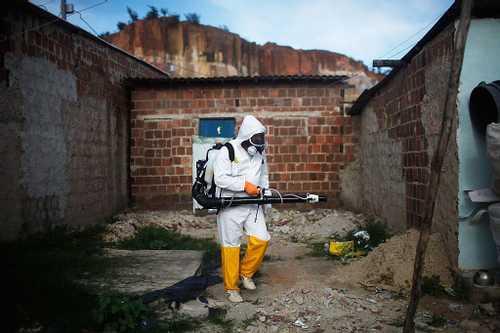Explore the World's Best Ideas
Join today and uncover 100+ curated journeys from 50+ topics. Unlock access to our mobile app with extensive features.
Epidemic vs. pandemic
An epidemic is a broad term used to describe any problem that is actively spreading and has grown out of control.
The pandemic relates to geographic spread. It describes a disease that affects a whole country or the entire world.
100
296 reads
Disease Event Classification
Epidemiology is the branch of medicine that handles the following:
- Incidence: the occurrence of a disease over a specified period.
- Prevalence: how many people are affected within a population.
- Control of diseases: an appropriate public health response.
Two measurable factors mostly define the level of disease occurrence:
- The pattern and speed by which a disease moves.
- The size of the susceptible population.
58
187 reads
The terms an epidemiologist use
- Sporadic refers to a disease that occurs infrequently or irregularly.
- Cluster refers to a disease that occurs in larger numbers even though the actual number or cause may be uncertain.
- Endemic refers to the constant presence and/or general prevalence of a disease in a geographic population.
- Hyperendemic refers to persistent, high levels of disease well above what is seen in other populations.
- Epidemic refers to a sudden increase in the number of cases of a disease above what is normally expected.
- Outbreak is the same as an epidemic but is often used to describe a more limited geographic event.
- Pandemic refers to an epidemic that has spread over several countries or continents, usually affecting a large number of people.
74
143 reads
Phases of a Pandemic
The one staging model used to direct the public health response involves the flu. The same basic model can be applied with variations to epidemics like tuberculosis or malaria.
- Phases 1 through 3 help public health officials know it is time to develop tools and action plans to respond to an impending threat.
- Phase 4 through 6 happen when action plans are implemented in coordination with the WHO.
53
158 reads
IDEAS CURATED BY
I have a passion for games and books. Avocado is my fuel. And superfood in general.
Evangeline E.'s ideas are part of this journey:
Learn more about health with this collection
How to focus on the present moment
How to improve relationships through mindful communication
How to reduce stress and anxiety through mindfulness
Related collections
Similar ideas
10 ideas
The 10 deadliest epidemics throughout history
health24.com
2 ideas
A visual history of pandemics
weforum.org
18 ideas
Pandemics That Changed History: Timeline
history.com
Read & Learn
20x Faster
without
deepstash
with
deepstash
with
deepstash
Personalized microlearning
—
100+ Learning Journeys
—
Access to 200,000+ ideas
—
Access to the mobile app
—
Unlimited idea saving
—
—
Unlimited history
—
—
Unlimited listening to ideas
—
—
Downloading & offline access
—
—
Supercharge your mind with one idea per day
Enter your email and spend 1 minute every day to learn something new.
I agree to receive email updates
